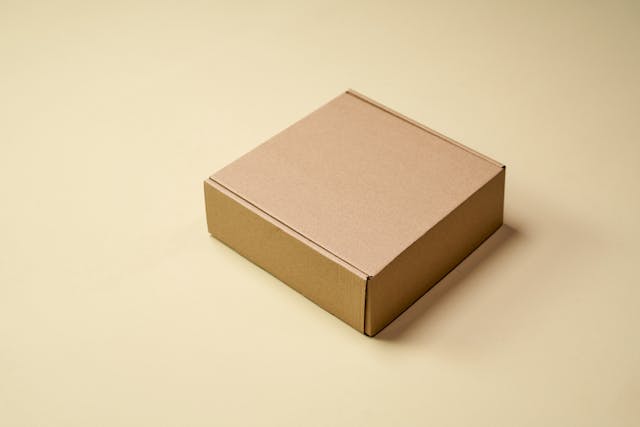Does JHU have grade deflation? Discover the truth behind Johns Hopkins grading, pressure, and academic culture from real experiences.
Yes, Johns Hopkins University (JHU) is known for rigorous grading and tough academic standards, which many students perceive as grade deflation, though the university doesn’t officially enforce one. Understanding these academic challenges is crucial when preparing for graduate school and planning your educational journey.
I still remember the first time I heard the phrase “Hopkins Hell Week.”
A friend, half-laughing and half-panicking, told me, “You don’t study for exams at JHU, you survive them.”
That’s how the question “Does JHU have grade deflation?” first crossed my mind. Not as a statistic, but as a whispered confession over a midnight study break.
Johns Hopkins University, the beacon of research and medicine, carries a reputation that borders on legend. It’s where Nobel laureates teach, where breakthroughs are born in labs, and where every student feels like they’re racing time itself.
But beneath that brilliance lies a quieter struggle: one about grades, expectations, and exhaustion.
Is grade deflation at JHU real? Or is it just the price of being extraordinary?
Let’s unpack it, with honesty, empathy, and a bit of curiosity.
Article Breakdown
What Exactly Is “Grade Deflation”?
Before we tag JHU with it, we need to understand what grade deflation actually means.
It’s not a rulebook. It’s a trend, when professors consistently grade lower than peers at similar institutions, often making high grades rarer.
In essence:
Grade deflation is when excellence still feels like mediocrity on your transcript.
It’s not that students perform poorly. It’s that the grading curve bends harder.
Some schools openly admit it; others deny it exists at all. But the feeling of working twice as hard for half the grade? That’s what sparks the debate.
And at Johns Hopkins, that feeling is more common than most realize.
Does JHU Have Grade Deflation? (Short Answer: Sort of, but It’s Complex)
The answer depends on who you ask.
If you poll ten Hopkins students, you’ll hear twelve opinions.
Some will say it’s brutal. Others will say it’s fair but unrelenting.
Here’s what the landscape looks like:
- No official policy: JHU does not cap the number of A’s. Professors have full grading autonomy.
- Average GPA: Around 3.3, lower than peer universities that hover around 3.6 or higher.
- STEM rigor: With powerhouse programs like Biomedical Engineering, Neuroscience, and Public Health, grading naturally skews tough.
So while no official deflation policy exists, the culture, difficulty, and grading norms make it feel like one.
As one student once put it:
“Hopkins doesn’t deflate grades. It just doesn’t inflate them like everyone else.”
The Culture of Excellence (and Exhaustion)
Every elite school prides itself on rigor. But Hopkins’ rigor has its own flavor, precision, pressure, and purpose.
1. The Pre-Med Gauntlet
JHU’s pre-med program is notorious. With the university’s hospital next door, students feel like they’re already in residency.
Organic Chemistry is the crucible. Exams can average in the 50s, and the curve decides who makes it through.
The logic is that medical school will be tougher, so you might as well start now. But emotionally, it’s draining.
2. The Curve as Competition
Hopkins professors often use relative grading, meaning your score is compared against others.
That seems fine, until you realize your peers are all top of their high school class, valedictorians, Olympiad finalists. Suddenly, an 85 feels like a coin toss.
You can’t just be good. You have to be exceptional, all the time.
3. The Perfectionist Paradox
Hopkins attracts perfectionists. Students who’ve never seen a B in their life.
Then they get their first one, and it feels like a small collapse.
It’s not about ego. It’s about identity. When your self-worth has always been tied to performance, grade deflation feels like erasure.
What Students Say: Real Voices, Real Frustrations
Here’s a glimpse of the collective Hopkins voice, a chorus of both pride and exhaustion:
| Experience | Student Sentiment |
| Organic Chemistry, Physics, Calculus | “Tests are brutal. Curves help, but morale tanks fast.” |
| Humanities & Writing Seminars | “Professors are fair, but expectations are sky-high.” |
| Public Health & International Studies | “Less curve, more writing-based, still demanding.” |
| Engineering & Computer Science | “Feels like constant triage between assignments.” |
| Mental Health | “The pressure doesn’t end. You just get better at hiding it.” |
So, is it grade deflation?
Maybe not officially. But emotionally, yes, it can feel like it.
Comparing Hopkins to Peer Schools
| University | Average GPA (Approx.) | Known for Grade Deflation? |
| Johns Hopkins | 3.3 | Often discussed, not official |
| Princeton | 3.4 | Historically yes (2004–2014) |
| MIT | 3.5 | Rigor over relaxation |
| Harvard | 3.8 | Heavy grade inflation |
| Cornell | 3.4 | Mixed reputation |
| Duke | 3.6 | Moderately inflated |
Placed side by side, Hopkins sits among the toughest graders.
Not because professors are cruel, but because standards are uncompromising.
To employers or med schools, that 3.3 from Hopkins often carries the weight of a 3.7 elsewhere.
Unfortunately, not every recruiter reads between those lines.
The Emotional Cost of Rigor
Grades at Hopkins are not just numbers, they’re psychological weather.
Students often describe waves of burnout, imposter syndrome, and quiet fatigue.
Assignments stack like bricks. Deadlines blur. Sleep becomes a luxury.
But in that chaos, something remarkable happens: resilience.
Because surviving Hopkins isn’t just about memorizing material, it’s about building endurance.
“Hopkins doesn’t make you smarter,” one graduate said. “It makes you relentless.”
And in the long run, that might matter more than GPA ever could.
Signs That the Culture Is Evolving
Not everything is grim.
In recent years, JHU has started softening the academic pressure, especially after the pandemic spotlighted mental health.
Changes include:
- Broader pass/fail options
- Mental health initiatives embedded in academic advising
- Professors encouraged to create more transparent grading rubrics
- A subtle shift from competition toward collaboration
Hopkins isn’t trying to be easy. It’s trying to be humane.
Students now talk more openly about burnout. Professors show more empathy.
It’s not perfection yet, but it’s progress.
Why “Deflation” Might Not Be a Bad Thing After All
Here’s the twist: grade deflation, for all its controversy, may actually serve a purpose.
Because Hopkins students, despite lower GPAs, have some of the highest acceptance rates to top medical and graduate schools.
Admissions officers know what Hopkins grades mean.
A 3.4 here is not mediocrity. It’s proof of mastery under pressure.
So maybe the grading isn’t unfair. Maybe it’s honest.
Hopkins rewards depth over ease, effort over ego.
That kind of rigor builds graduates who aren’t just employable, they’re unbreakable.
Comparative Section: “The Reality Curve”
| Factor | Hopkins | Typical Ivy (e.g., Harvard) |
| Grading Style | Relative / Curve-Based | Lenient / Participation-Based |
| Average GPA | ~3.3 | ~3.7–3.8 |
| Student Stress | High | Moderate |
| Course Rigor | Intense, detail-heavy | Broad, discussion-heavy |
| Grade Inflation Policy | None | Unspoken norm |
| Employer Respect | High | High |
| Emotional Toll | Significant | Manageable |
Hopkins doesn’t inflate.
It measures learning the hard way, through persistence, not points.
FAQ’s
1. Does Johns Hopkins have grade deflation?
Not officially, but many students experience tough grading that feels deflated compared to peer universities.
2. Is it harder to get an A at JHU?
Yes. Especially in STEM courses, where grading is rigorous and curves are steep.
3. How does JHU grading compare to Ivy League schools?
Hopkins generally maintains lower average GPAs but higher academic rigor.
4. Does this affect medical school admissions?
Not negatively. Admissions committees understand JHU’s difficulty and often value its rigor.
5. Has grading become easier after 2020?
Slightly. The university has become more flexible with grading and more supportive of mental health.
Key Takings
- Grade deflation at JHU isn’t official, but the experience feels real due to rigorous grading and steep curves.
- Average GPAs are lower than peer schools, especially in STEM-heavy programs.
- Rigor is cultural, not enforced, it reflects Hopkins’ emphasis on mastery.
- Students often face burnout, but they also develop unmatched resilience.
- Perception of deflation often comes from comparing JHU to grade-inflated institutions.
- Graduate and med schools recognize the value behind Hopkins GPAs.
- Hopkins continues to evolve, aiming for balanced excellence over relentless pressure.
Additional Resources
- The Problem with Grade Inflation: A deep dive into how lenient grading across universities has changed academic value and fairness.
- Why Hopkins Students Feel the Pressure: A personal exploration of academic intensity, student stress, and the evolving conversation around wellness.



